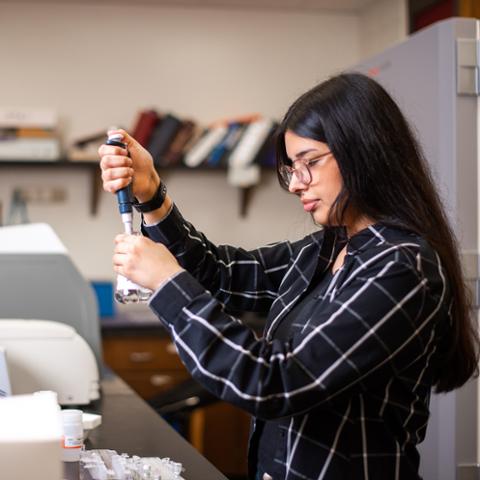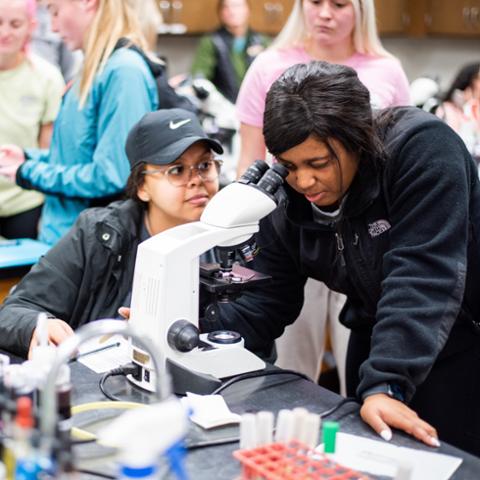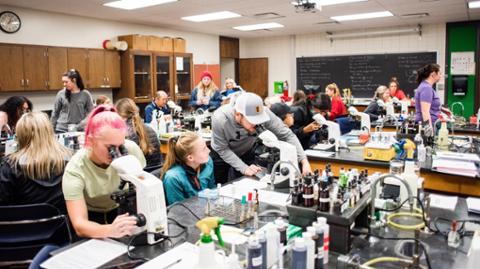Cellular and Molecular Biology
Major in Biology with an Emphasis in Cellular and Molecular BiologyDiscover the hidden universe within cells.
Cellular and Molecular Biology explores the fundamental mechanisms that govern life. Learn about what occurs within cells and how they control the development and function of organisms.
This emphasis track equips students to pursue careers in research, medicine, biotechnology, and more! Develop new treatments for diseases, improve crop yields, and engineer new biological products.

Our students work alongside faculty who are actively engaged in groundbreaking research projects.

Our program incorporates laboratory work, research internships, and practical training, enabling you to develop technical expertise.

Conduct experiments and explore the latest techniques in molecular biology, imaging, genomics, and more.
What is Cellular and Molecular Biology?
Cellular biology examines the basic unit of life, which is the cell. This field explores how cells interact with their environment and carry out essential processes such as:
- Metabolism
- Growth
- Division
- Differentiation
Molecular biology, on the other hand, delves into the study of biological molecules and their interactions within cells. It investigates molecules such as:
- DNA
- RNA
- Proteins
- Carbohydrates
- Lipids
The fields of cellular and molecular biology are closely intertwined and often overlap. They provide a foundation for various biological processes, including development, reproduction, immune response, and disease.
Classroom topics in the Cellular and Molecular Biology emphasis
- Cell Biology: Dive into the study of cells, uncovering their structures and functions to grasp the essence of life at its fundamental level.
- Molecular Biology: Decode the genetic blueprint of life, exploring DNA, RNA, and the molecular processes that underpin cellular functions.
- Microbiology: Explore the unseen world of microorganisms, understanding their impact on health and disease through cutting-edge research.
- Biochemistry: Unravel the chemical intricacies of life, from biomolecules to metabolic pathways, revealing the molecular underpinnings of cellular processes.
Careers for Cellular and Molecular Biology graduates
- Agriculture
- Biochemist
- Biomedical Engineer
- Chemist
- Clinical Research Specialist
Graduates of this program will be prepared to contribute to the fields of global medicine and environmental issues. Professionals in these fields study the molecular basis of cancer and infectious disease, as well as the development of biofuels and genetic engineering of crops for improved disease resistance.

Additional information
Biology - Cellular & Molecular Degree Map download
Catalog – see catalog for the School of Science and Mathematics